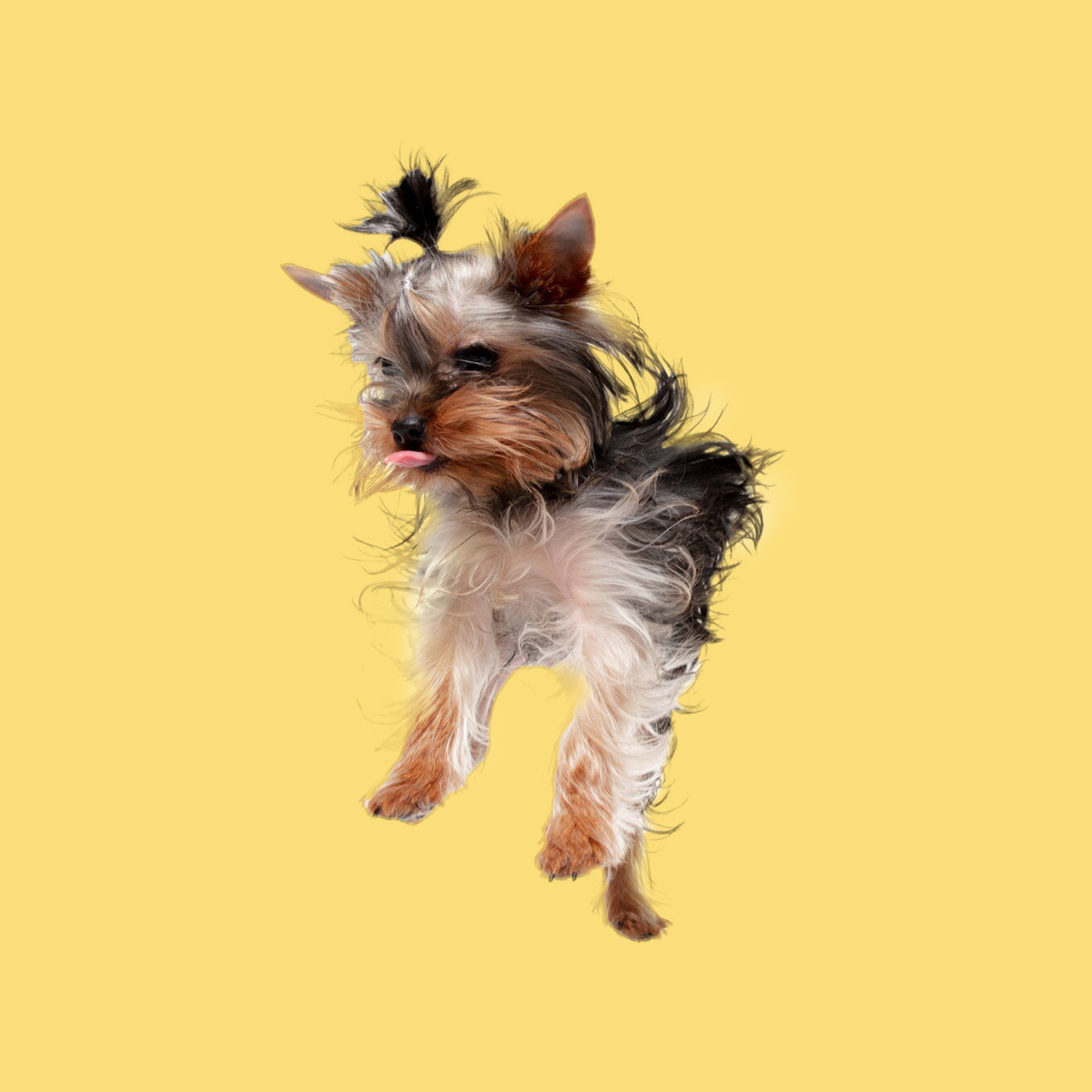Dislocation of the Kneecap
Dislocation of the kneecap is a genetic problem. To avoid the discomfort caused by this problem, your companion animal must exercise regularly and maintain a healthy weight. A balanced intake of lean meats, eggs, high-quality protein, calcium, and phosphorus will help your furry friend to develop muscles properly.
Corrective surgery may be necessary to fix severe cases of knee cap dislocation. However, regular veterinary check-ups will detect early signs of kneecap dislocation and allow you to take appropriate measures at an early stage of the disease’s development.
Collapse of the Trachea
Due to their small size and delicate tracheal structure, Yorkshire Terriers may be prone to tracheal collapse. Tracheal collapse is a genetic disease that causes narrowing of the tracheal rings. The disease is accompanied by symptoms such as chronic cough, shortness of breath, and lack of oxygen caused by physical effort or emotional excitement. Symptoms associated with the disease may be caused by inhaling chemicals, a tight collar, or trauma to the neck.
Working closely with your veterinarian, maintaining a healthy lifestyle, and sustaining a quiet living environment are wise ways to prevent tracheal collapse.
Eye Problems
Genetic cataracts, retinal dysplasia, and progressive atrophy are eye problems that can cause significant discomfort to Yorkies. To avoid these problems, try to keep your valuable family members out of direct sunlight and windy weather. A food rich in vitamins A, C, and E will ensure proper eye health for your companion animals. As a competent parent, remember that regular veterinary examinations are especially crucial to detecting eye diseases at an early stage.
Diabetes Mellitus
Diabetes is a chronic disease caused by high blood sugar (glucose) levels. In diabetes, the pancreas can’t produce enough insulin. This may cause damage not only to the kidneys but also to cardiovascular and vision systems. Symptoms of diabetes include increased thirst, sudden weight loss, and changes in appetite. Insulin therapy may be necessary to manage the process. However, a balanced diet with complex carbohydrates and a controlled feeding schedule will help your companion animal regulate blood sugar levels.
Urolithiasis
Urolithiasis is a common urological disease in companion animals, the main cause of which is a genetic predisposition to metabolic problems. Causes of urolithiasis may be lack of sunlight, dehydration, and an inactive lifestyle. Don’t delay a visit to the vet if you notice that your important family member is experiencing discomfort when urinating, limbs are swollen and body temperature has risen significantly.

